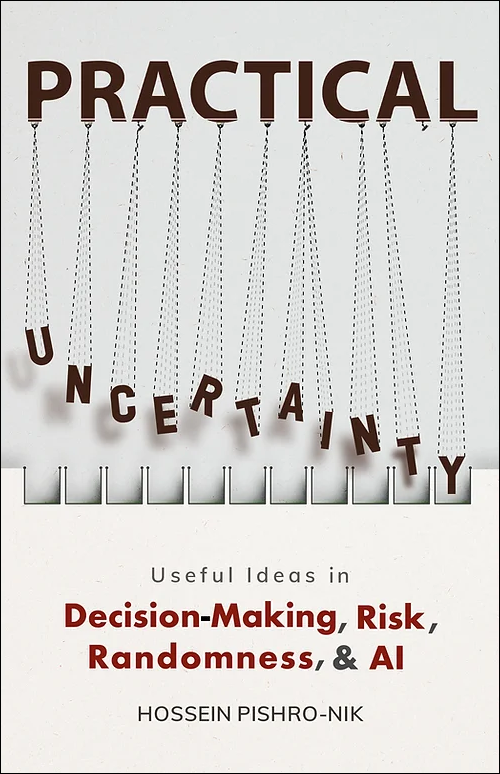6.2.3 Chernoff Bounds
If is a random variable, then for any , we can write
Now, note that is always a positive random variable for all . Thus, we can apply Markov’s inequality. So for , we can write
Similarly, for , we can write
Note that is in fact the moment generating function, . Thus, we conclude
Chernoff Bounds:
| , | |
|---|---|
Since Chernoff bounds are valid for all values of and , we can choose in a way to obtain the best bound, that is we can write
Let us look at an example to see how we can use Chernoff bounds.
Example
Let . Using Chernoff bounds, find an upper bound on , where . Evaluate the bound for and .
- Solution
- For , we have Thus, the Chernoff bound for can be written as To find the minimizing value of , we can write which results in By using this value of in Equation 6.3 and some algebra, we obtain For and , we obtain
Comparison between Markov, Chebyshev, and Chernoff Bounds:
Above, we found upper bounds on for . It is interesting to compare them. Here are the results that we obtain for and :
The bound given by Markov is the “weakest” one. It is constant and does not change as increases. The bound given by Chebyshev’s inequality is “stronger” than the one given by Markov’s inequality. In particular, note that goes to zero as goes to infinity. The strongest bound is the Chernoff bound. It goes to zero exponentially fast.
← previous
next →
The print version of the book is available on Amazon.  |
|---|
**Practical uncertainty:**Useful Ideas in Decision-Making, Risk, Randomness, & AI  |